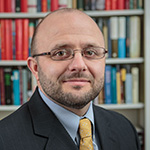 By Jason Coker
By Jason Coker
I’ll never forget something Bob Dole said about Bill Clinton back in the ’90s when they were running against each other for the presidency. It was a classic example of political right versus political left. Bob Dole, a World War II veteran, who was wounded in Italy fighting against the Germans, had his work cut out for him as he opposed the incumbent president, who was an economic juggernaut. In one of their debates, Senator Dole was pressed to let President Clinton have it. He was baited to hammer Clinton. When given this opportunity, he did something I haven’t seen politicians do since. He declined the opportunity. He reminded the questioner that “Bill Clinton is my opponent; he is not my enemy.” I have been an admirer of Bob Dole every since then.
Maybe that was the last vestige of honor and dignity in presidential elections (or many elections these days). Everything is so nasty now; it’s sad. What happened to our capacity as a nation to have a truly civil discourse? The first Republican presidential debate looked more like a Saturday Night Live sketch than a real presidential debate. There was no sideshow; the whole thing looked like a sideshow. You would barely recognize that these candidates were in the same political party. I wondered if these candidates thought of each other as opponents or enemies? And all the while, something called “politically correctness” took the biggest beating. It has continued to take a tongue lashing among these hopefuls and it seems to have resonated with the American people. But what is political correctness and how does it relate to the words of the gentlemanly Bob Dole?
From the pundits, political correctness would seem to be some terrible liberal agenda that is threatening to destroy our country. One candidate in particular loves to bash political correctness. It almost serves as the opposite of honesty. In this light, political correctness somehow is the nemesis of “telling it like it is.” This rings in the ears of Americans as pushing against a political system that has increasingly become removed from the realities of everyday life in the United States.
While this rhetoric resonates, I do not think it is either honest or true. In fact, I sincerely believe we need more political correctness rather than less. Here’s an example of political correctness: using “undocumented resident” rather than “illegal alien.” Other examples of politically correct language include gender inclusive or gender neutral terms, and using the preferred categories for racial and ethnic identity, i.e. African American, Asian American, Arab American, etc.
All this politically correct language that is disparaged among some is actually an attempt to be kind at least, inclusive at best. That’s what I think so many have failed to notice as they are getting swept up in the political rhetoric of othering. Many, however, truly agree with this othering. There is a segment of our country that does not want to include others into the American experiment. Including women (gender inclusive/neutral language), including racial difference (African Americans, Arab Americans, etc.), and including immigrants (undocumented residents) all represent a shift in America over the past 50 to 60 years. These groups of human beings have systematically been included in modern American society and I think our country has been strengthened by it and made better.
While true diversity may be more difficult to manage, it is always better. It is better because, as a Christian, I think God made all of us — every human being. I think we are all made in the image of God. I think every human being has an intrinsic value and important voice. The more voices we have represented while making any decision, the more likely we are to make the right decision. By systematically excluding people, whether based on gender, race, ethnicity, sexual orientation, political party, etc., we systematically undermine our capacity to reflect the nature and creativity of God.
Let’s make no mistake, political correctness as defined above certainly challenges white, male homogeneity. And that, in fact, may be the nostalgia that the anti-politically correct rhetoric is recollecting. Is this what it means to “make America great again?” Reverting back to the good ol’ days when America was run by white, heterosexual, Protestant men, is not the America in which I want to live. Even now, it is a stretch to say that we live in a country whose government is diverse. I want more diversity and inclusivity because I am a Christian and I think all people matter. Where whole segments of our society have been historically oppressed, I think we should repent and seek forgiveness from God and from those who have been oppressed. It is not enough to not be racist or sexist or homophobic. We Christians must be anti-racist, anti-sexist and anti-homophobic. Fear and hate undergird all these prejudices, and there is no place for fear and hate among Christians.
If political correctness is undergirded by kindness and inclusivity, then I think we need more of it! In a political system that is so divided like ours, kindness and inclusivity are not traits that are valued, which brings me back to Bob Dole. How different would our political debates be in the public sphere if each candidate was truly kind — not even inclusive — just kind? We can completely disagree with each other, politicians can completely disagree with each other, but we all can be kind to each other. We can acknowledge the humanity in each other, and if we believe that God created us all in God’s image, we may be able to acknowledge the divinity that resides in each other, too. While it may be too naïve to think that political candidates would change the nature of their rhetoric, is it too much to expect kindness from Christians in America?
